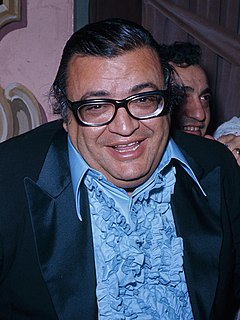A Quote by Mario Puzo
Even as a young man, Vito Corleone became known as a "man of reasonableness." He never uttered a threat. He always used logic that proved to be irresistible. He always made certain that the other fellow got his share of profit. Nobody lost. He did this, of course, by obvious means. Like many businessmen of genius he learned that free competition was wasteful, monopoly efficient. And so he simply set about achieving that efficient monopoly.
Quote Topics
About
Achieving
Always
Became
Businessmen
Certain
Competition
Corleone
Course
Did
Efficient
Even
Fellow
Free
Genius
Got
His
Irresistible
Known
Learned
Like
Logic
Lost
Made
Man
Many
Means
Monopoly
Never
Nobody
Obvious
Other
Profit
Proved
Reasonableness
Set
Share
Simply
Threat
Used
Wasteful
Young
Young Man
Related Quotes
In the whole history of capitalism, no one has been able to establish a coercive monopoly by means of competition in a free market...Every single coercive monopoly that exists or ever has existed...was created and made possible only by an act of government...which granted special privileges (not obtainable in a free market) to a man or a group of men, and forbade all others to enter that particular field.
If a company is not a monopoly, then the law assumes market competition can restrain the company's actions. No problem. If a monopoly exists, but the monopoly does not engage in acts designed to destroy competition, then we can assume that it earned and is keeping its monopoly the pro-consumer way: by out-innovating its competitors.
Man wasn't made to share the universe with gods. Their ways are not meant for the humble likes of us. But we've decoded some of their secrets regardless. Like worms, we've grabbed on to the talons of eagles and learned some small truths and means of flight. But we can never really fly. We try, and succeed to a certain extent, but the fall is always - will always be - there.
It is not competition, but monopoly, that deprives labor of its product. Destroy the banking monopoly, establish freedom in finance, and down will go interest on money through the beneficent influence of competition. Capital will be set free, business will flourish, new enterprises will start, labor will be in demand, and gradually the wages of labor will rise to a level with its product.
There is already something like a Jewish monopoly in high finance... here is the same element of Jewish monopoly in the silver trade, and in the control of various other metals, notably lead, nickel, quicksilver. What is most disquieting of all, this tendency to monopoly is spreading like a disease.
It is not every man who can be a Christian, even in a very moderate sense, whatever education you give him. It is a matter of constitution and temperament, after all. He may have to be born again many times. I have known many a man who pretended to be a Christian, in whom it was ridiculous, for he had no genius for it. It is not every man who can be a free man, even.
This was Barrington Erle, a politician of long standing, who was still looked upon by many as a young man, because he had always been known as a young man, and because he had never done anything to compromise his position in that respect. He had not married, or settled himself down in a house of his own, or become subject to the gout, or given up being careful about the fitting of his clothes.




































